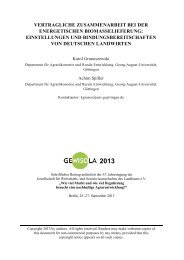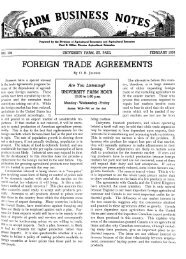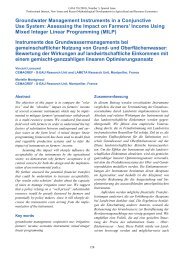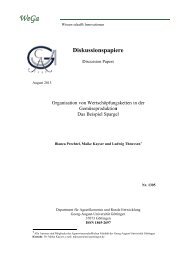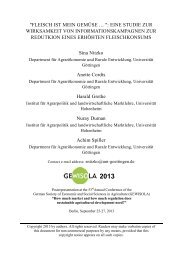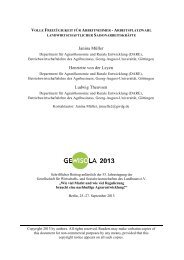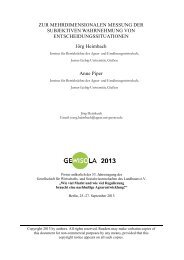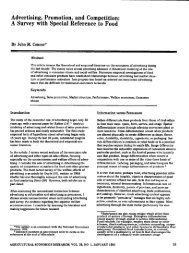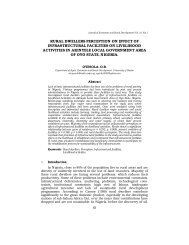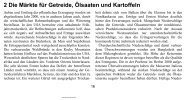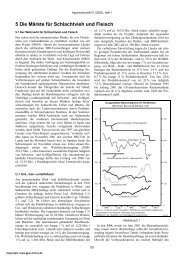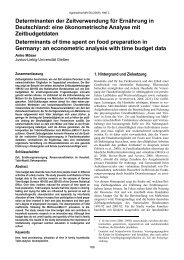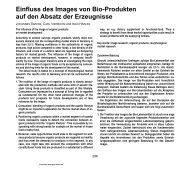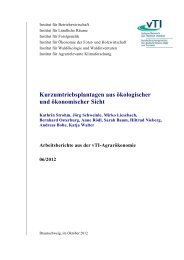District Institutes of Education and Training - Teacher Education
District Institutes of Education and Training - Teacher Education
District Institutes of Education and Training - Teacher Education
You also want an ePaper? Increase the reach of your titles
YUMPU automatically turns print PDFs into web optimized ePapers that Google loves.
<strong>District</strong> <strong>Institutes</strong> <strong>of</strong> <strong>Education</strong> <strong>and</strong> <strong>Training</strong>: A Comparative Study in Three Indian States<br />
Table 1.1: Suggested branches <strong>and</strong> staffing <strong>of</strong> a DIET<br />
DIET branches Staffing<br />
1 PSTE Pre-service teacher education 8 + 1 Lab. asst.<br />
2 WE Work Experience 3<br />
3 DRU <strong>District</strong> Resource Unit 5 + 2 clerks<br />
4 IFIC In-service programmes, Field Interaction<br />
<strong>and</strong> Innovation Co-ordination 2 + 1 clerk<br />
5 CMDE Curriculum, material development <strong>and</strong><br />
evaluation 2<br />
6 ET <strong>Education</strong>al Technology 2 + 1 technician<br />
7 P & M Planning <strong>and</strong> management 2 + 1 statistician<br />
Total<br />
Library staff (librarian + clerk); <strong>of</strong>fice<br />
superintendent, accountant, 5 clerks (incl. 1<br />
for hostel); 6 class IV staff, hostel warden<br />
24 + 6<br />
(faculty member) 15<br />
Gr<strong>and</strong> total 45<br />
Staff would be required to teach in the following areas:<br />
1 Foundations <strong>of</strong> education <strong>and</strong> pedagogy<br />
2 The subjects taught at the elementary stages, namely:<br />
i languages taught at the elementary level in the district<br />
ii mathematics<br />
iii environmental studies, social science<br />
iv environmental studies, science<br />
v work experience<br />
vi art education<br />
vii health <strong>and</strong> physical education<br />
3 Non-formal education<br />
4 Adult education<br />
5 Curriculum, materials development <strong>and</strong> evaluation<br />
6 In-service programmes, field interaction <strong>and</strong> innovation co-ordination<br />
7 Planning <strong>and</strong> management<br />
8 <strong>Education</strong>al Technology (MHRD 1989).<br />
Staff should have a Master’s degree in both a subject area <strong>and</strong> in education, <strong>and</strong><br />
seven years <strong>of</strong> elementary sector experience. Ideally, a principal is expected to have<br />
a PhD.<br />
1.3.5 Resource Centres in the <strong>District</strong><br />
A second major structural change in relation to teacher development has been the<br />
advent <strong>of</strong> Cluster Resource Centres (Box 1.1). These were initially instituted by<br />
14 DFID



